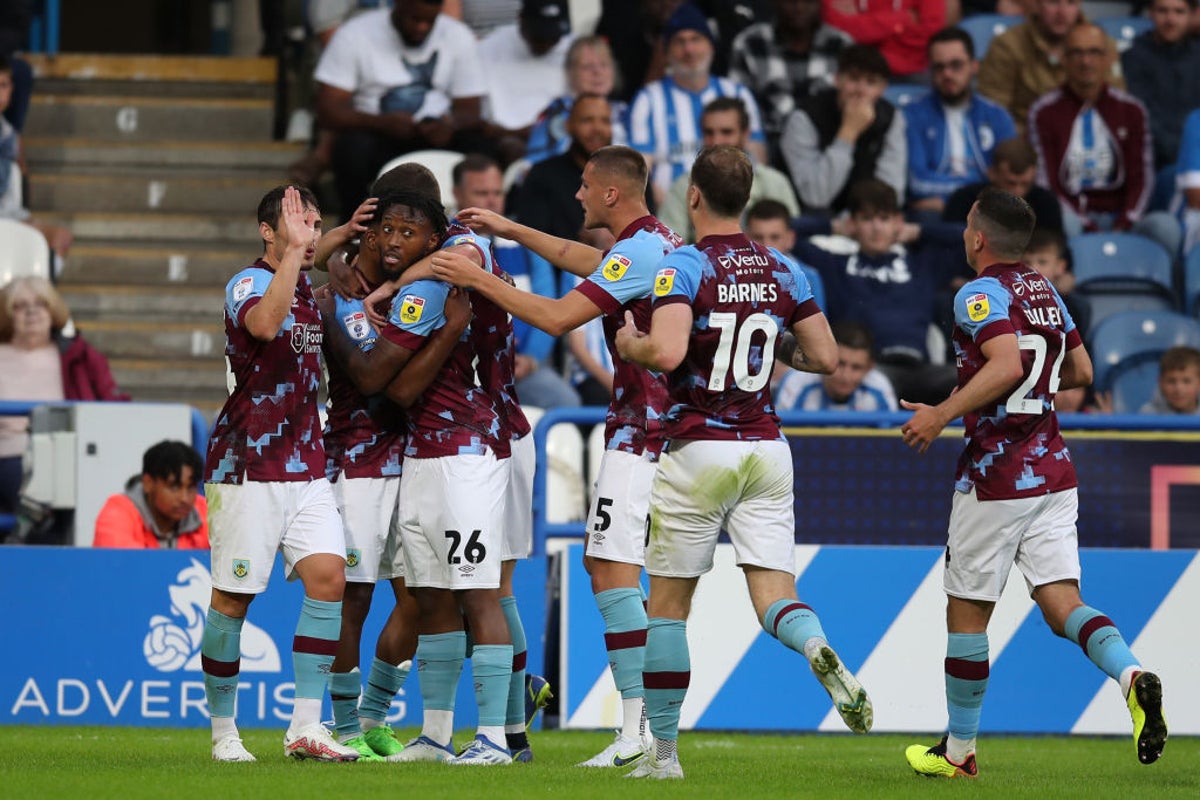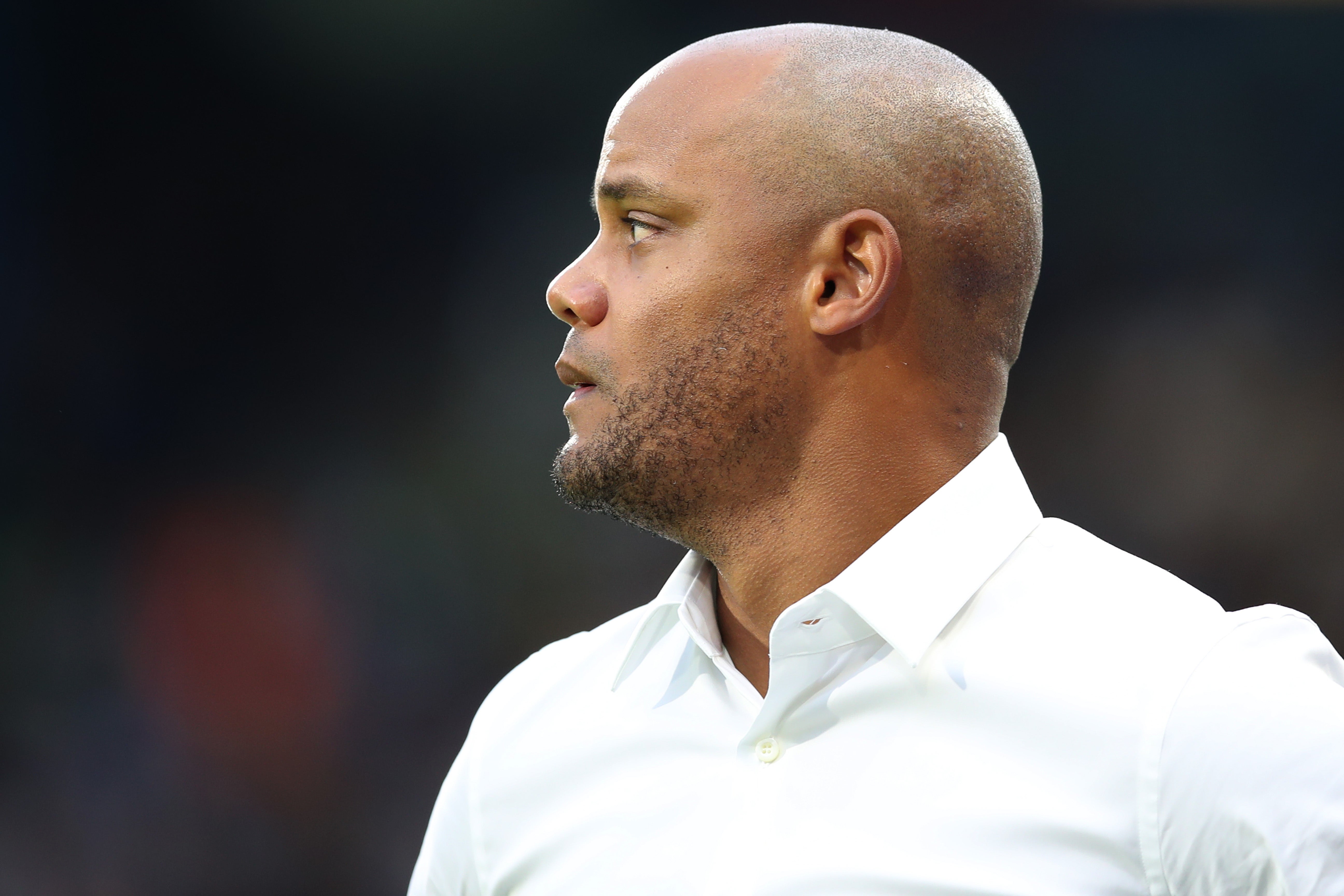
Meet the new boss, very different to the old boss. Vincent Kompany’s reign at Burnley began with a win forged by new players and a new ethos. His Burnley promise to be the opposite of Sean Dyche’s side and, in some respects, Kompany has already brought the right kind of change. Burnley’s first league win last season came on 30 October. Victors in July now, albeit in a lower division, they could enjoy their first taste of the Championship since 2016.
There was an immediate endorsement of Kompany’s overhaul. The winner came from one of his nine signings, Ian Maatsen, the other outstanding display from another, in Josh Cullen, Dyche’s gameplan drew on neither a marauding left-back nor a midfield playmaker and Kompany benefited from both. But Dyche’s beloved 4-4-2 was jettisoned, 4-2-3-1 adopted and, unlike in previous years, when the Burnley supporters chorused “anti-football”, they were being ironic. Some of their passing was imaginative. Much of it was excellent.
They completed 301 passes in the first half alone; they only completed 300 in two Premier League matches last season. Kompany looked inspired more by his old manager, Pep Guardiola, than the constant in the Burnley dugout for almost a decade. Even as, Dyche style, he wore a dark suit, he paired it with white trainers. It would have been anathema to Dyche but then maybe the Belgian will have the common sense to wear a coat in the Burnley cold in winter.
Perhaps his predecessor encouraged comparisons. It was only on Wednesday when he belatedly visited the pub named after him, the Royal Dyche. If it felt a particularly undiplomatic case of timing, Kompany nevertheless began the process of consigning him to the past. The caretaker Mike Jackson, who had made a valiant attempt to avert relegation, oversaw the warm-up for a rejigged back four. They kept a clean sheet, even with Charlie Taylor forced to play as a makeshift centre-back.
It was a reminder Kompany is papering over the cracks in his squad after a summer exodus included Ben Mee, James Tarkowski and Nathan Collins. With Jay Rodriguez injured, Ashley Barnes was the sole striker available, and tried to compensate for his lack of pace by lingering offside and who, but for a crunching tackle by Tom Lees, may have scored.
A radical makeover is not complete, with Maxwel Cornet likely to join the ranks of the departures. They number 11 who made almost 1200 appearances for Burnley between them. Instead, Kompany’s first starting 11 contained six debutants: five additions plus the teenager Dara Costelloe, who spurned a golden chance, courtesy of a wonderful cross from the overlapping Maatsen.

By then, the Dutchman had scored the first goal of the new era, the on-loan Chelsea player curling a low shot into the bottom corner. It followed a dummy by Barnes which, like the presence of the left-back in the opposition’s box, felt unlikely under Dyche.
His dynamism suggested Kompany has showed some nous in the transfer market. So did the class of Cullen. The playmaker for Kompany’s Anderlecht completed all 47 of his first-half passes and 79 from 81 in total, but he allied incision with accuracy, including a couple of delightful defence-splitting balls. Two more Kompany buys sparkled in cameos, Scott Twine hitting the post with a free kick and Vitinho looking dangerous.
Change may benefit them. Huddersfield had the wrong sort, losing pivotal personnel but fielding a starting 11 with no new signings. They have been stripped of five starters in May’s play-off final, as well as manager Carlos Corberan, who concluded that was as much as he could achieve. The £10 million received from Nottingham Forest for Lewis O’Brien and Harry Toffolo is unlikely to be spent this window. Burnley looked a level above them, even if Huddersfield were brighter when the Chelsea loanee Tino Anjorin came on. But new manager Danny Schofield’s reign began with defeat, Kompany’s with a win to provide momentum for the reinvention of Burnley.







